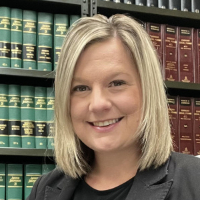Middlebury White Collar Crime Lawyer, Indiana
Sponsored Law Firm
-
 x
x

Click For More Info:
-
The Law Offices of Richard L. Cooper, P.A.
848 Brickell Avenue Suite 800 Miami, FL 33131» view mapDWI/DUI, Drug Trafficking, Felony Nationally Ranked Top 40 Under 40
With Richard L. Cooper you can expect a trusted confidant who will work diligently to fully understand your case and determine a road map to help you regain control of your life.
800-756-2781
Not enough matches for Middlebury White Collar Crime lawyer.
Below are all Middlebury Criminal lawyers.
Kayla Anne Christofeno
✓ VERIFIEDCriminal, Estate
Kayla Christofeno is a skilled criminal defense attorney with experience defending many different types of crimes. She is a lifelong resident of Elkh... (more)
Phillip Lynn Miller
Accident & Injury, Criminal, Divorce & Family Law, Traffic
Status: In Good Standing Licensed: 32 Years
William J. Cohen
Criminal, Insurance, Accident & Injury, DUI-DWI, Personal Injury
Status: In Good Standing Licensed: 46 Years
Chelsey Newberry Sarason
Collection, Household Mold, Identity Theft, DUI-DWI
Status: In Good Standing
Martin A. McCloskey
Accident & Injury, Criminal, Divorce & Family Law, Lawsuit & Dispute
Status: In Good Standing
Mark David Altenhof
Nursing Home, Criminal, Civil & Human Rights, Accident & Injury
Status: In Good Standing Licensed: 21 Years

 Richard L. Cooper Miami, FL
Richard L. Cooper Miami, FL AboutMiami Attorney at Law
AboutMiami Attorney at Law ServicesCriminal Defense
ServicesCriminal Defense

